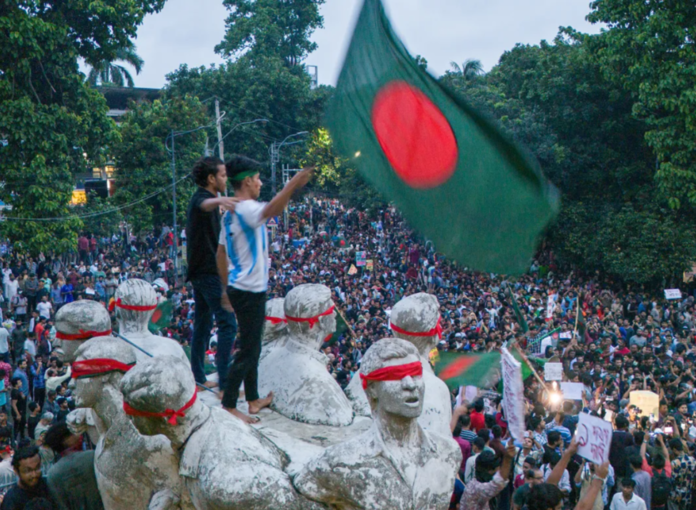In early August, former Bangladeshi Prime Minister Sheikh Hasina fled to India after a mass uprising forced her to resign. The unrest that led to her departure left nearly 650 people dead and many more injured.
Since then, a number of criminal cases have been filed against Hasina and her associates, accusing them of crimes such as murder, torture, enforced disappearances, abduction, crimes against humanity, and genocide. While Bangladeshi courts could theoretically try her in absentia, concerns about fairness, due process, and enforcement undermine the feasibility of such trials.
Calls for Extradition
Calls for Hasina’s extradition to Bangladesh began almost immediately after her escape. Although Bangladesh and India signed an extradition treaty in 2013 (amended in 2016), the process remains uncertain. The treaty allows either country to request the return of fugitives for crimes punishable by at least one year in prison, provided the offenses are punishable in both countries.
Despite this, India’s decision to extradite would hinge on diplomatic and political factors. Historically, the treaty has facilitated the exchange of fugitives between the two nations. For example, India returned two convicted killers of Sheikh Mujibur Rahman, Bangladesh’s founding leader and Hasina’s father, in 2020. Similarly, Bangladesh handed over Anup Chetia, a separatist leader from India, in 2015.
Legal and Political Hurdles
The treaty includes provisions that allow India to refuse extradition, particularly for offenses deemed political or military in nature. While crimes like murder, manslaughter, and kidnapping are excluded from this exception, Indian courts could still reject a request if they believe the charges against Hasina are politically motivated or if extradition would expose her to persecution or an unfair trial.
Concerns about justice and security have already emerged. Reports indicate that detained former ministers from Hasina’s government have been assaulted and denied legal representation. Additionally, cases have been filed against prominent figures, including cricketer Shakib Al Hasan, without clear evidence of their involvement in alleged crimes. However, the Adviser for Law and Parliamentary Affairs, Asif Nazrul, has assured that names will be removed from the cases if individuals are found innocent.
Seeking Asylum
If Hasina’s safety cannot be guaranteed, she may seek political asylum, which would block any extradition attempts. India granted her asylum once before, following the assassination of her father in 1975. However, her current situation is complicated by the Bangladeshi interim government’s revocation of her diplomatic passport.
Reports suggest that Hasina was exploring asylum options in the UK, UAE, Saudi Arabia, or Finland, though her son, Sajeeb Wazed Joy, has stated she has not sought asylum and intends to return to Bangladesh when elections are announced.
Diplomatic Solutions with India
Ultimately, the extradition treaty is only a framework for cooperation, not a guarantee. Whether Hasina is extradited will depend on diplomatic negotiations and the political will of both countries, rather than purely legal arguments. For now, her future remains uncertain as both nations weigh their next moves. However, it appears that India may strive to shield Hasina, given her track record of aligning policies with India’s interests during her time in power.



